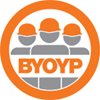Steel Mill Combustion and Thermal Systems
About the Program
The goal of this conference is to increase the efficiency of combustion and thermal systems by exposing attendees to concepts of good housekeeping fundamentals, optimizing efficiency through data-driven insights and multipath approaches to decarbonization. Attendees will receive exposure to the latest techniques for the upgrade and optimization of their systems to improve energy performance and reduce emissions. The workshop will highlight the role analytics has in transforming data to valued and actionable information to achieve tighter control of temperature zones, better adjusting of thermal systems, and increased process throughput and energy savings. The use of sensors and diagnostics, modeling and visualization tools, and advanced energy optimization techniques will be covered. The conference will also cover the concept of multiple paths to decarbonization through topics such as the use of low-carbon fuels and energy sources, use of electro technologies, and the application of innovative energy efficiency solutions.
Who Should Attend
This training seminar is designed for supervisors, engineers, and technicians who are directly involved in the operation, maintenance, design, or installation of combustion equipment in steel mills. Other attendees who would benefit from this seminar include utility personnel managing fuels utilization, environmental engineers managing air quality, and sustainability engineers responsible for increasing efficiencies and lowering emissions, and managers responsible for overall energy efficiency and optimization on-site.
Bring Your Own Young Professional (BYOYP) Program
 AIST recently launched the Bring Your Own Young Professional (BYOYP) program to encourage our members to help boost the next generation’s involvement in AIST and the steel industry. If you are an AIST member and are bringing a Young Professional (age 30 and under) to the conference, you can receive a free gift. All you have to do is enter their contact information on the registration form when you sign up for the conference. Find out more information about the program here.
AIST recently launched the Bring Your Own Young Professional (BYOYP) program to encourage our members to help boost the next generation’s involvement in AIST and the steel industry. If you are an AIST member and are bringing a Young Professional (age 30 and under) to the conference, you can receive a free gift. All you have to do is enter their contact information on the registration form when you sign up for the conference. Find out more information about the program here.
Professional Development Hours
This course may qualify for up to 14 Professional Development Hour (PDH) credits. Each attendee will receive a certificate listing the quantity of PDH credits earned for the course. This course is not approved for PDH credits in New York, Florida, North Carolina and Oklahoma.
Organized By
AIST's Energy & Utilities Technology Committee
Previous Course Program
4–6 March 2025 • Atlanta, GA, USA
